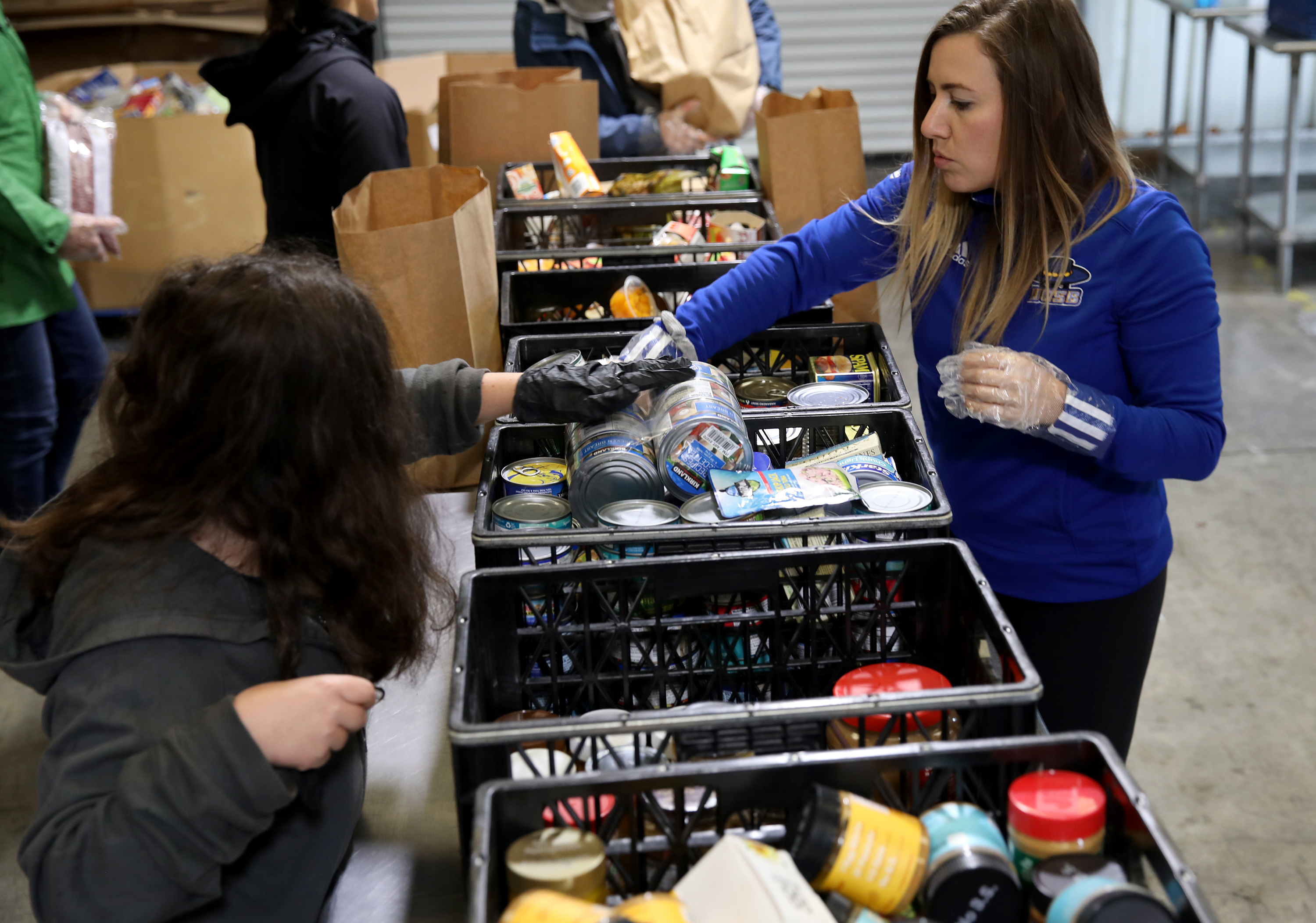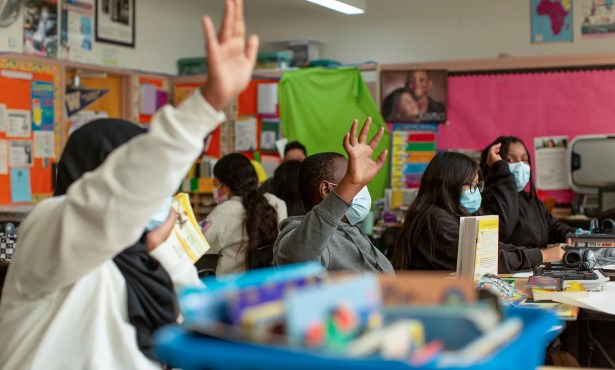Foodbank of Santa Barbara County Ramping Up Its Efforts
Nonprofit Preparing to Increase Its Services in Response to COVID-19 Pandemic

The Foodbank of Santa Barbara County is ramping up its services to keep up with feeding the county’s hungry and food insecure during the COVID-19 pandemic.
The nonprofit, which has been responsible for providing food for one in four Santa Barbara residents before the outbreak began, is preparing to increase its services both to those who were already food insecure and relying on Foodbank’s services and to those vulnerable to the virus and had not before relied on Foodbank.
“The biggest difference I’ve noticed is that we have a lot less food coming in from grocery stores,” said Michelle Conran, who has been regularly volunteering with Foodbank for more than two years. In recent weeks, panic around the virus has caused grocery store shoppers to stockpile their food — leaving less for Foodbank to redistribute to food-insecure individuals.
Conran was wearing disposable rubber gloves and packaging together sealed bags of shelf-stable foods like cereal, canned fruit, bagged beans, and pasta. Normally, she said, the Foodbank’s more than 300 agencies come into the warehouse every morning to “shop” for their nonprofits. Now, they aren’t allowed inside.
“The agencies can order ahead of time, and the volunteers bag it up for them so they don’t come inside the warehouse,” explained Lisa Skvarla, director of community engagement for Foodbank.
She said the food pantries on UCSB and City College’s campuses, Catholic Charities, several transition houses in town, and the Salvation Army are some of the major agencies, and that UCSB’s order on Monday in terms of quantity was “very significant,” likely because many students out of school are bearing the brunt of food insecurity now that many food service and retail operations are being shut down — common college student jobs.

For Santa Barbara’s Foodbank, the most vulnerable populations during the pandemic in terms of food insecurity are children, seniors, and low-income residents. The Foodbank already has a brown-bag delivery program that delivers groceries to seniors’ homes and 17 sites for pickup countywide. Now, they will expand the senior delivery program to include any seniors who are quarantined or sheltering in place and persons over 70 years old.
“On Wednesday we will begin our senior delivery program expansion,” Skvarla said. “Over the next coming weeks, we will need more volunteers and community members to join us.”
Mia Weber, who works for UCSB’s athletics department, decided to sign up as a volunteer while she’s working from home. Tuesday was her first day, so she didn’t have anything to compare the job to in terms of new COVID-19 protocols, but so far she felt she was making a difference.
“I came here to start packing food because I felt like there were more people in need,” Weber said. “Plus, it’s actually really fun.”
“In times like this, the most vulnerable in our community are even more so, so it’s important nonprofits can function to support community members,” Skvarla said. “Those who can help who are able-bodied or can give donations are much appreciated. The need doesn’t go away because everything closed.”
Information on how to volunteer can be found here.



You must be logged in to post a comment.